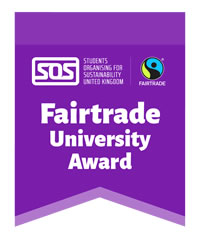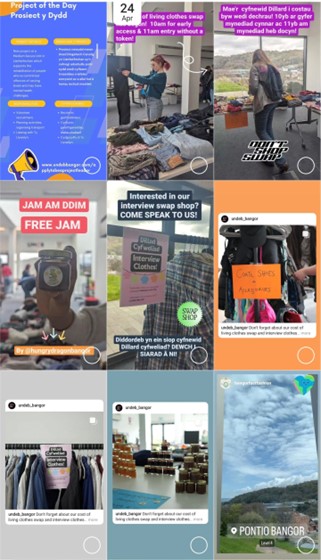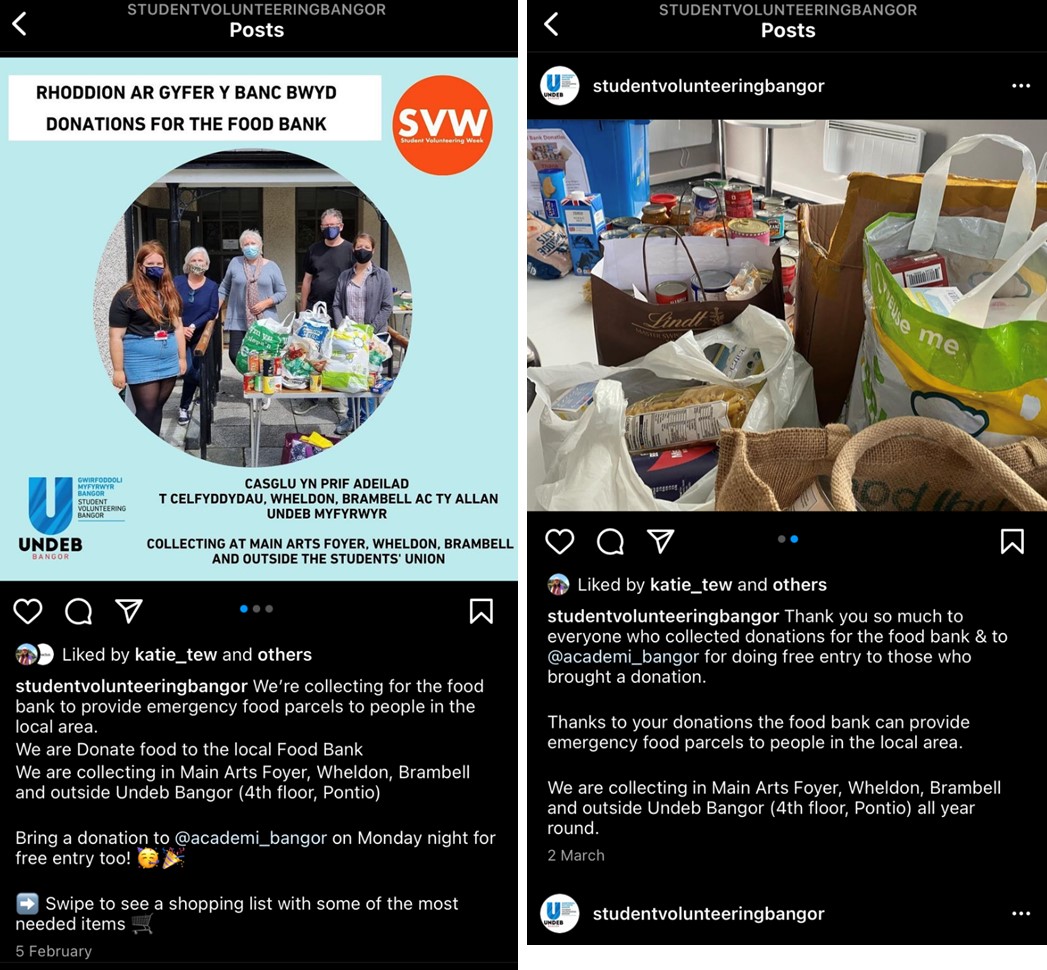Food and Drink
Places to eat and drink
We’re committed to delivering tasty, great value food using fresh and where possible, local ingredients.
We offer and support Fairtrade accredited products in all our outlets, and have Fairtrade accreditation, we use fish from sustainable sources and all our eggs are free range.
Significant purchasing for catering is with suppliers from the TUCO (The University Caterers Organisation) framework which promotes supply chain sustainability and provides extensive information, resources and networks for us to keep abreast of the latest developments in sustainable catering.
Fairtrade
Bangor University have been granted Fairtrade status since September 2009 by making an ongoing commitment to support Fairtrade. We offer and support Fairtrade accredited products in all our outlets, and are working towards the new Fairtrade accreditation. We also support students who wish to investigate Fairtrade, trade justice and ethical consumption within their dissertations.

Community Food
The University is proud to offer space and support on campus for student groups working on sustainable food projects. Read more on the various projects below.
Healing Garden - Student Volunteering Bangor
A student-led allotment and garden is located in the heart of Upper Bangor, next to St James's Church on Ffriddoedd Road. In 2010 the students started to transform a quarter of a hectare of disused University land into a productive, beautiful and biodiverse organic garden. Partnered with Headway Gwynedd, the Brain Injury Foundation, the garden features raised beds, living willow structures, Welsh heritage fruit trees and a sensory spiral and bog garden.
Outside the garden they organise foodie trips, film nights and educational seminars to share knowledge; previous talks have included species identification, organic pest control and a history of organic gardening. All Bangor students are welcome! Just grab your wellies and come along to one of our work parties.
To volunteer please visit their webpage: https://www.instagram.com/bu_healing_garden/?hl=en
The Hot Meals Project
This is a student-led volunteering project set up in partnership with Bangor City Council, who provide funding and use of the council halls and facilities (dining hall, kitchen etc.) for free.
The project cooks free hot meals for people in the community every Saturday, providing over 50 meals. Student leaders run the project and support sessions with guidance, training and support from the Students’ Union. They coordinate different groups of volunteers to support and cook a different meal each week, with a variety of student groups (other volunteering projects, clubs and societies) getting involved. The project also provides takeaway hot meals to residents in local care homes. See more on their Facebook page.
Hungry Dragon Bangor
Hungry Dragon is a student-led food project, working out of a University building, saving surplus food in Bangor. Partnered with Bangor Fair-Price Café, they convert surplus fruit and veggies from local supermarkets into yummy preserves and meals.
The Hungry Dragons project supported our Cost-of-Living event in February 2024 by cooking jams and preserves from waste fruit and veg.

Food Bank Donations
The Students' Union have food bank donation baskets across the University. The donated food stays in Bangor and is taken for distribution to Bangor Cathedral.

